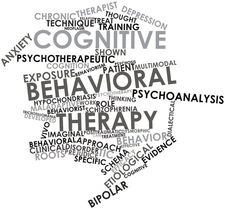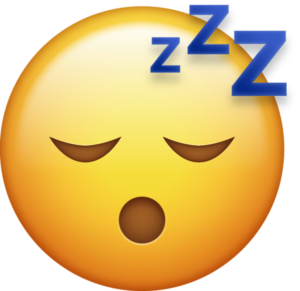 Depression and anxiety disorders are among the most common mental health problems. They can interfere with our ability to carry out major life activities, like work and raising children..An estimated 17.3 million American adults (7.1%) had at least one major depressive episode in the past year. Anxiety disorders are even more common, affecting an estimated 23.4 million. That’s almost one in five adults! These numbers are even higher among adolescents. It would be improper to add these numbers, as co-occurring Depression and Anxiety Disorders are quite common (i.e., many people diagnosed with one also suffer from the other), but it probably is reasonable to call depression and anxiety “the common cold of mental health.”
Depression and anxiety disorders are among the most common mental health problems. They can interfere with our ability to carry out major life activities, like work and raising children..An estimated 17.3 million American adults (7.1%) had at least one major depressive episode in the past year. Anxiety disorders are even more common, affecting an estimated 23.4 million. That’s almost one in five adults! These numbers are even higher among adolescents. It would be improper to add these numbers, as co-occurring Depression and Anxiety Disorders are quite common (i.e., many people diagnosed with one also suffer from the other), but it probably is reasonable to call depression and anxiety “the common cold of mental health.”
 Pharmaceutical Medications
Pharmaceutical Medications
Antidepressants are now the most commonly prescribed drugs in the US. From 1996 to 2005, the rate of antidepressant use rose from 5.84% to 10.12%. But a report recently published in The Journal of the American Medical Association showed that antidepressants work best for only very severe cases of depression and have little to no benefit in less serious cases. Worse, “We have known for many, many years that these antidepressants don’t have the kinds of response rates in the real world of practice that they have in those clinical trials that are funded by industry or by the government,” said David Mischoulon, MD, PhD, associate professor of psychiatry at Harvard Medical School and director of research at Massachusetts General Hospital’s Depression and Clinical Research Program.
Experts say that in cases of mild depression, psychotherapy often works just as effectively as antidepressants. “I think it’s always been appropriate… to try other things like therapy, particularly with mild cases,” said Jennifer Payne, MD, assistant professor of psychiatry at Johns Hopkins School of Medicine and director of the Women’s Mood Disorders Center..
Doctors often prescribe antidepressants, such as paroxetine (Paxil), fluvoxamine (Luvox), or sertraline (Zoloft), for the treatment of anxiety. Many antidepressants fall into the category of medications called selective serotonin reuptake inhibitors (SSRIs) and are approved for the treatment of anxiety disorders, such as Generalized Anxiety Disorder and Panic Disorder. However, new research indicates that SSRIs may provide little benefit in relieving symptoms of anxiety.
“Anxiolytics” are another type of drug used to treat the symptoms of anxiety. That is, they do not treat the anxiety disorder itself, but they can help to control the symptoms, making it possible for some people to feel normal and function in society. Unfortunately, most of these drugs — especially the benzodiazepines — are highly addictive. Long-term usage has been linked with development of dementia and other permanent memory impairment. Withdrawing from benzodiazepines is also dangerous if not done properly and can lead to worsening of anxiety.
Another medication that has been approved by the FDA for treatment of anxiety disorders is known as Buspirone. For some people it works extremely well with minimal side effects., but many people find that it is ineffective. Buspar isn’t thought to be as powerful as SSRI medications, making for easier withdrawals and no major unwanted side effects. Based on this drug’s safety profile, it should probably be tried ahead of many other medications.
 Cognitive Behavior Therapy
Cognitive Behavior Therapy
Equally as effective as drug treatment, Cognitive Behavior Therapy has none of the side-effects of the SSRIs or Benzodiazepines and can bring about long-term change, eliminating the causes and not just the symptoms of depression and anxiety disorders.
Cognitive-behavior therapy is considered among the most rapid and most effective forms of psychotherapy. The average number of sessions clients receive (across all types of problems and approaches to CBT) is only 16. Other forms of therapy, like psychoanalysis, can take years. CBT is time-limited in that we help clients understand at the very beginning of the therapy process that there will be a point when the formal therapy will end. The ending of the formal therapy is a decision made by the therapist and client. Therefore, CBT is not an open-ended, never-ending process. The goal of CBT is to provide the client with the skills to be their own therapist.
Behavior Change
Our grandparents knew that there are lots you can do to ward off depression and anxiety. They knew that changing behavior — physical activity, lifestyle, and even our ways of thinking — are all natural depression treatments. All of these changes can be made without the help of a therapist, but coaching and feedback can make a huge difference!
- Routine — my grandfather, who was born in the final years of the 19th century. once told me “In my day, we didn’t have time to be depressed.” Though I am sure people did suffer from Depression in his day, it is also true that one of the best ways to prevent Depression is to stay busy. We need routine, especially when feeling depressed. Simply put, when we are depressed we don’t feel like doing much of anything — even activities we used to enjoy.
- Goals — When we’re depressed, we may feel like we can’t accomplish anything. That makes us feel worse about ourselves. To push back, set daily goals for yourself. Make your goal something that you can succeed at, like doing the dishes every other day. As you start to feel better, you can add more challenging daily goals.
 Exercise — Aerobic exercise temporarily boosts feel-good chemicals called endorphins. It may also have long-term benefits for people with depression. In fact, 30 to 45 minutes of aerobic exercise three times per week has been shown to be more effective in the treatment of Depression than any antidepressant medication!
Exercise — Aerobic exercise temporarily boosts feel-good chemicals called endorphins. It may also have long-term benefits for people with depression. In fact, 30 to 45 minutes of aerobic exercise three times per week has been shown to be more effective in the treatment of Depression than any antidepressant medication!- Challenge negative thoughts — In our fight against depression, a lot of the work is mental — changing how we think. When we’re depressed, we leap to the worst possible conclusions. The next time you’re feeling terrible about yourself, use logic as a natural depression treatment. You might feel like no one likes you, but is there real evidence for that? You might feel like the most worthless person on the planet, but is that really true? It takes practice, but in time you can beat back those negative thoughts before they get out of control.As noted above, working with a good Cognitive Behavior Therapist can help to change these thoughts.
- Diet — There is no magic diet that fixes depression, but it’s a good idea to watch what we eat. If depression tends to make you overeat, getting in control of your eating will help you feel better. There is evidence that foods with omega-3 fatty acids (such as salmon and tuna) and folic acid (such as spinach and avocado) might help ease depression.
- Exercise — Aerobic exercise temporarily boosts feel-good chemicals called endorphins. It may also have long-term benefits for people with depression. In fact, 30 to 45 minutes of aerobic exercise three times per week has been shown to be more effective in the treatment of Depression than any antidepressant medication!
 Sleep hygiene –Depression can make it hard to get enough sleep and too little sleep can make depression worse.What can you do? Start by making some changes to your lifestyle. Go to bed and get up at the same time every day. Try not to nap. Take all the distractions out of your bedroom — no computer and no TV. In time, you may find your sleep improves. Click HERE for more information on Sleep Hygiene.
Sleep hygiene –Depression can make it hard to get enough sleep and too little sleep can make depression worse.What can you do? Start by making some changes to your lifestyle. Go to bed and get up at the same time every day. Try not to nap. Take all the distractions out of your bedroom — no computer and no TV. In time, you may find your sleep improves. Click HERE for more information on Sleep Hygiene.- Take on responsibilities — When you’re depressed, you may be tempted to pull back from life and give up your responsibilities at home, at school or at work. Don’t. Staying involved and having daily responsibilities can help you maintain a lifestyle that can help counter depression. They ground you and give you a sense of accomplishment. If you’re not up to full-time school or work, that’s fine. Think about part-time. If that seems like too much, consider volunteer work.
- Do something new — When you’re depressed, you’re in a rut. Push yourself to do something different. Go to a museum. Pick up a book and read it on a park bench. Volunteer at a soup kitchen. Take a language class. Go for a walk. When we challenge ourselves to do something different, it increase the level of the brain chemical dopamine, which is associated with pleasure, enjoyment, and learning.
- Fun. If you’re depressed, make time for things you enjoy. What if nothing seems fun anymore? This is part of Depression. If we wait till we “feel like” doing something, we will never do anything. Though this might sound crazy, when we are Depressed we have to force ourselves to have fun!
Supplements
Check with your doctor before using supplements. There’s promising evidence for certain supplements for depression, including fish oil, folic acid, and SAMe. But more research needs to be done before we’ll know for sure. Always check with your doctor before starting any supplement, especially if you’re already taking medications.
- St. John’s Wort — This

St. John’s Wort
might be the most studied herbal remedy — with more than 30 studies so far — some of which show it to be effective for treatment of mild Depression. But double-blind, placebo-controlled studies (the “gold standard” for drug testing) found that it is NOT effective for major depression. Also, the FDA has issued a warning on St. John’s wort, saying it dangerously interferes with a long list of prescription drugs. Do not even think of using St. John’s Wort without consulting your physician.
- SAM-e — It’s short for S-adenosylmethionine, a molecule that naturally occurs in the cells of plants and animals — including humans. As we age, our bodies produce less SAM-e, so replacing it with a supplement can theoretically treat clinical depression.In some studies, SAM-e has worked as well as pharmaceutical antidepressants in treatment of clinical St. depression. It doesn’t seem to cause side effects for most people. SAM-e should not be taken with other antidepressants, as it could cause dangerously high levels of the neurotransmitter serotonin. Also, SAM-e can be outrageously expensive, so that limits accessibility for most people.
- Omega-3 Fatty Acids — Growing evidence shows that caviar, salmon, mackerel, and sardines can chase away clinical depression. These coldwater fish — as well as walnuts and flaxseed — have high amounts of omega-3 fatty acids. This is another natural substance that plays a part in the functioning of every cell of the body,. It seems to reduce the risk of heart disease, stroke, and Alzheimer’s disease, and it seems to have a preventive effect on Bipolar Disorder — but also is beneficial for clinical depression. In parts of the world where fatty fish are a dietary mainstay, there is less depression. One small study showed that people with Bipolar Disorder who took omega-3-rich fish oil capsules every day had fewer episodes of mania than those who took a placebo. Again, omega-3 should not replace other medications, but it can help in treating clinical depression. There’s no downside to eating an omega-3-rich diet.
The bottom line is that little research has been done on the risks or benefits of natural supplements for the treatment of Depression or Anxiety. Please keep the following in mind:
- Just because something is “natural” does not mean it is safe. For example, strychnine is derived from a plant and is perfectly natural, but is a deadly poison.
- Much of the information available on natural supplements is provided by sources like natural food stores and websites who stand to benefit financially. Seek information only from reputable sources, such as the Mayo Clinic, WebMD, MedlinePlus, the National Institutes of Health, or Drugs.com. Each of these sources value their reputation and have a lot to lose by publishing inaccurate information. Most commercial sites do not.
- As a general rule, health and medical information websites sponsored by the U.S. government, not-for-profit health or medical organizations, and university medical centers are the most reliable resources on the Internet. While sites supported by for-profit companies, such as drug or insurance companies who may be trying to sell you their products, are usually not your best option.
- Health and medical information changes all the time so check the date that information was published to make sure it’s current. And, if you’re doing research online before seeing a doctor, print your findings out on paper, including the site you got your information from, so you can review it together.